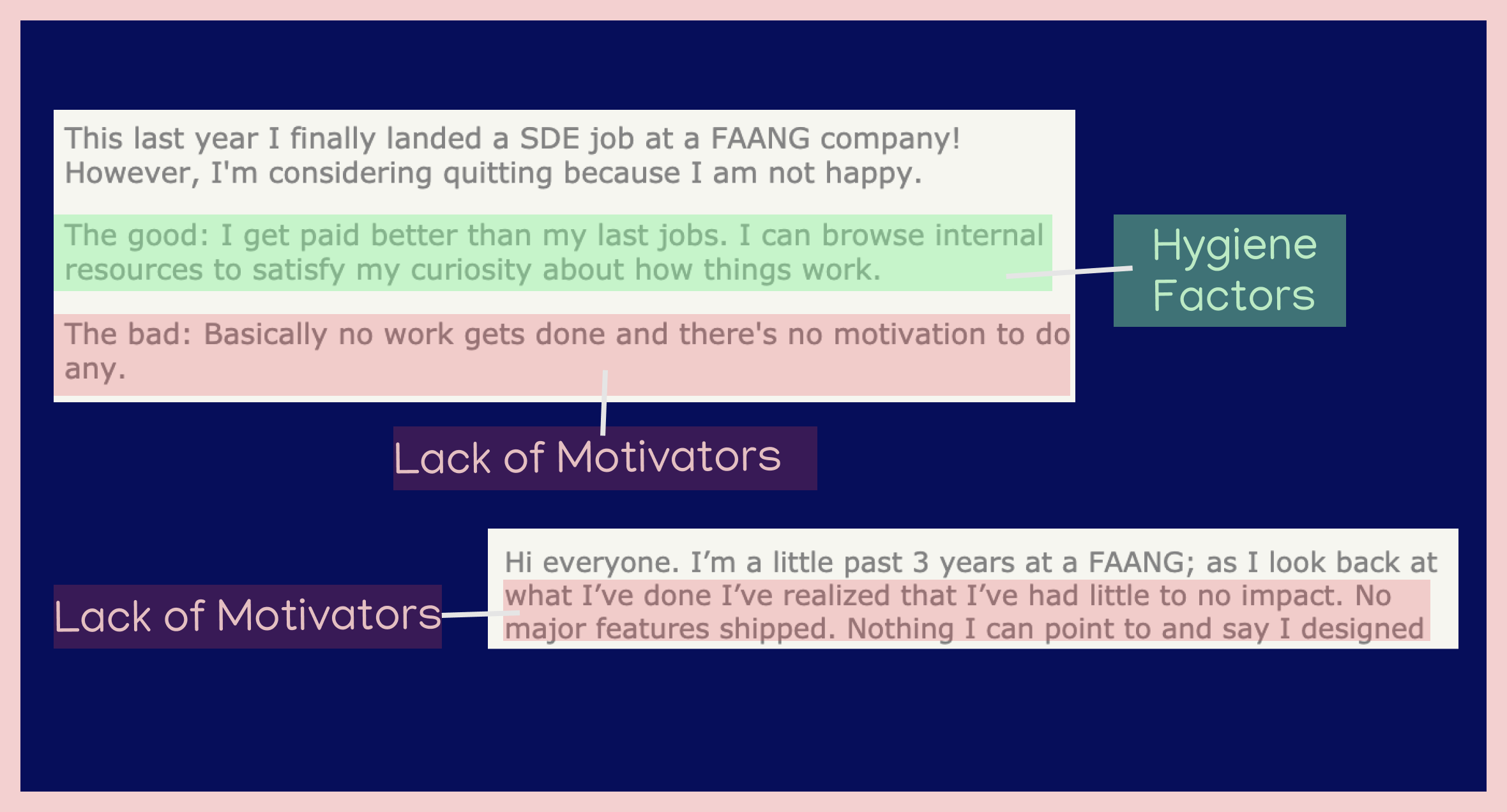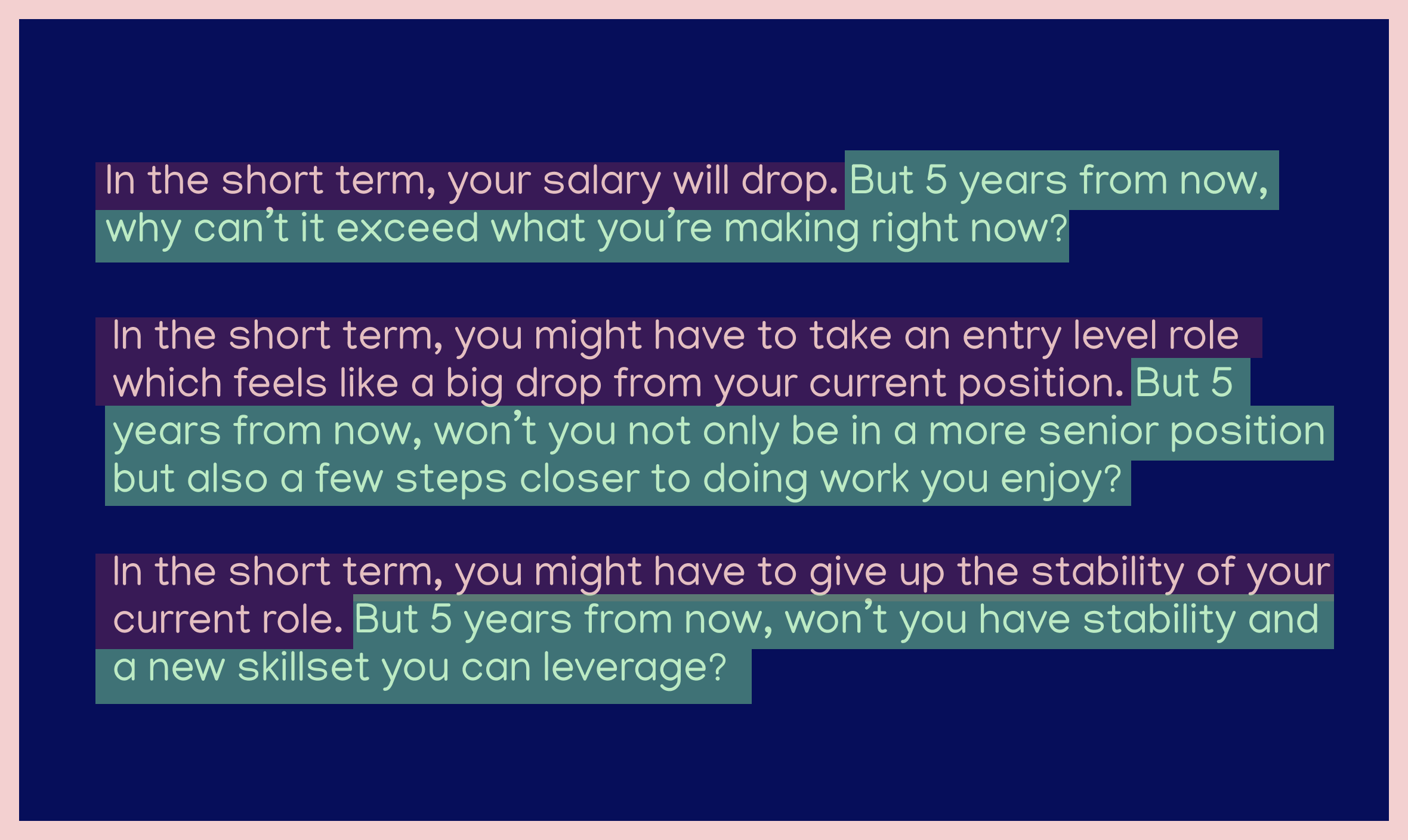In the 1950s, Frederick Herzberg developed a theory that states there are two dimensions to job satisfaction: motivation and hygiene.
Hygiene factors can minimize dissatisfaction at work, but they can’t make you love your job. These are factors like salary, supervision, and working conditions.
When you look back at the best moments of your career, they won’t really include the perks or the free lunches you got.
Instead, you’ll look back and remember the motivators. These are factors like recognition and achievement. They mean that your work is challenging and that you’re learning about topics that you’re intrinsically interested in. These are the factors that’ll be the predominant source of your work satisfaction and what contribute to your personal growth.
Here’s the thing though. If the hygiene areas aren’t properly addressed, you won’t feel satisfied regardless of how fulfilling your work is.
No matter how challenging and exciting your work is, if you’re not getting paid what you deserve, you’ll constantly have a nagging thought at the back of your head telling you to leave.
On the other hand, only having hygiene areas resolved is the reason why you constantly think something’s missing. You’re puzzled over why you’d be unhappy - you have a high status job, plenty of cash, and great coworkers.
But we need challenge and growth to drive us forward. And that’s why the motivators are integral. Without the motivators, we go to bed at night dreaming about what we’d be doing in an alternative world. Just look at these Hacker News posts:

The reason this can be hard to identify in our day to day is because we wrongly assume that just because we’re not fully unsatisfied, we must be satisfied. And when we inevitably don’t get that resounding feeling of congruence with our work, we get puzzled.
Here are some potential combinations of hygiene factors and motivators:

One of my favorite examples of someone who prioritized her intrinsic motivators over factors like money or status is Kristina Lustig. She quit her high paying Director of Design job to retrain as a Software Developer.
It might not have made sense to others around her, but only Kristina knew what motivated her intrinsically.

Let’s assume you realize you want to make a career change into something more rewarding. Your brain is going to freak out.
It’s going to start screaming:
The key to overcome this thinking is to separate short term losses from long term losses.

It’s really easy to fall into the trap of thinking that the nicer office, the next pay raise, or the more prestigious title is what will make us happy. After all, it’s what your friends and family see. It’s the labels that stick.
Instead, we should aim to ask a different set of questions:
These are the things that will truly motivate you. The rest is just noise.
***
If you want to read more about Herzberg's two factor motivation theory, I recommend the book How Will You Measure Your Life? by Clayton Christensen. Lots of good stuff in there.
Thanks for reading. Appreciate you sharing the Twitter thread below if you found this useful.
I kept seeing posts on Hacker News about engineers making high 6 figures but wanting to leave their job. So I decided to investigate what *actually* motivates us at work.
— Career Fair (@OGCareerFair) March 31, 2021
THREAD... pic.twitter.com/HHyqlBMu6n
I also write a newsletter you can sign up to below. It’s my best stuff delivered straight to your inbox. Otherwise, you can follow the Twitter account.
Cheers,
Shikhar
Some people call it a newsletter - I call it a good time. I write about tech careers and how you can get ahead in yours. It’s my best content (like this case study) delivered to you once a week.